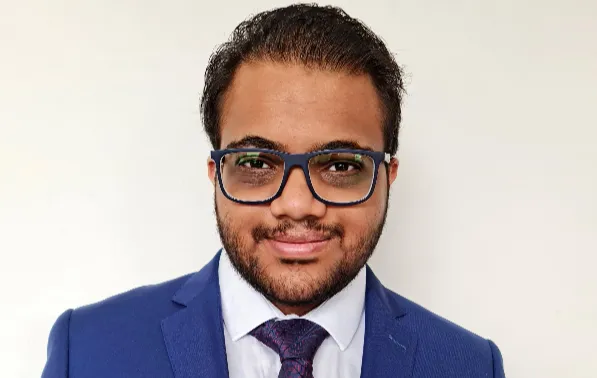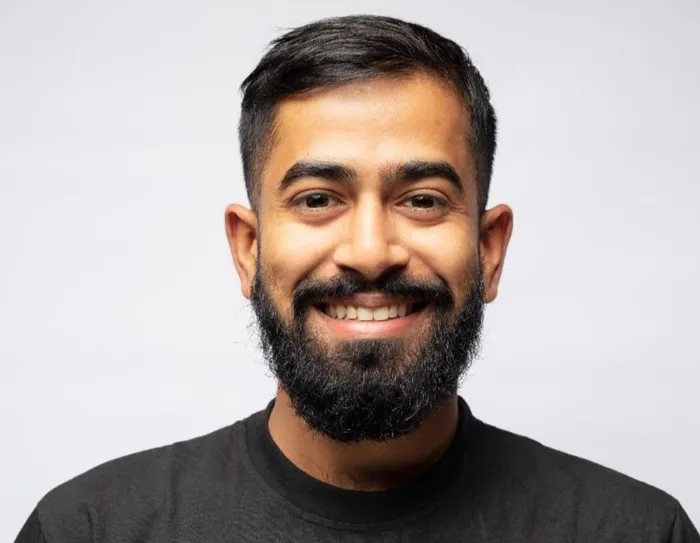
Aqeel Madhi.
Image: Supplied
Ahead of Youth Day on June 16, young South Africans shared the challenges faced by the youth and their thoughts on how far they believe we have come as a country, 31 years into democracy.
Aqeel Madhi, 27, of uMhlanga, said the challenges faced by the youth were not new.
“Youth unemployment sits at 62.4% compared to the national rate of 32.9%. We are also dealing with gender-based violence (GBV) and what I believe is an under-discussed mental health crisis. Only 5% of our national health budget goes to mental healthcare.”
Madhi, a machine learning engineer, said youth were not given opportunities to show what they could do.
“We are capable, energetic and willing. If we are truly the future, then every South African, every institution, and every level of government should be working with us to secure this country's future, not putting the burden solely on us.”
Madhi said if the issues faced by the youth were not addressed, the consequences would be devastating.
“We will entrench intergenerational poverty transmission. Research consistently shows South Africa has among the world's lowest social mobility, with poor education quality being a major factor keeping families trapped in cycles of poverty. Failure to address these issues will also further erode our economy and increase crime and mental health problems.
“However, Ubuntu is what I love most about being South African, and it is our solution. Every person, institution, and government level must come together to fix this youth crisis which requires an emergency-level response,” he said.

Irfaan Mangera.
Image: Supplied
Irfaan Mangera, 28, of Lenasia, said the youth faced an overwhelming set of crises.
“The most urgent being lack of access to quality education and skills training, youth unemployment, mental health challenges, systemic inequality, and political exclusion.
“Over 60% of young people are unemployed. GBV, food insecurity, and a failing education-to-employment pipeline are not just issues, they are symptoms of a broken system that is not listening to or investing in its youth meaningfully.”
Mangera, a youth activist and human rights, strategy and campaigns consultant, said young people had always been the engine of change in South Africa.
“From the 1976 uprisings to #FeesMustFall and even now as advocates in their communities. We must continue to organise, conscientise, and mobilise collective and people’s power. We also need to enter and transform institutions, from student councils to Parliament.
“The youth must also take up space not only in protest but in policy, public service, entrepreneurship, the arts, and community leadership. Our role is not to wait our turn; it is to lead differently and with values that are rooted in equality, dignity, respect and a commitment to constitutional democracy.”
Mangera said if the challenges were not addressed with urgency, South Africa risked becoming a democracy in name only.
“Where our rights are not protected, and the elite of society continue to garner insurmountable privileges while the most vulnerable suffer the most inhumane conditions, the generation left behind will become a breeding ground for despair, violence, populism, and political instability. We will have failed our own Constitutional promise and betrayed the dreams of those who fought and sacrificed for our freedom. The cost will be borne not only by the poor but by the soul of the nation, which is becoming visible with each passing day.”
He said while there had been constitutional and infrastructural gains since 1994, for millions of South Africans, particularly the youth, democracy had not delivered justice and inequality had grown.

Abigail Haridew.
Image: Supplied
Abigail Haridew, 22, of Chatsworth, said youth unemployment remained a crisis.
“However, beyond this, lies a far more insidious issue: the erosion of hope. Many young South Africans, myself included, feel disillusioned by persistent inequality, political instability, and the unfulfilled promises of post-apartheid progress.
“When the pathways to personal growth and national contribution appear blocked or corrupted, the result is a generation that feels increasingly detached from civic engagement and national identity. This disengagement can manifest in mental health struggles, increased substance abuse, or migration in search of better opportunities abroad."
Haridew, a third year student at the University of KwaZulu-Natal’s Nelson R Mandela School of Medicine, said young people had more power than they sometimes realised.
“While we face serious challenges from unemployment to inequality, we can’t afford to sit back, and hope things change on their own. We need to take action in our own spaces, whether that means starting youth-led initiatives, raising awareness on social media, volunteering in our communities, or simply supporting each other through education and mentorship."
She added that the government needed to take real action to support young people, not just make promises.
“We need better access to quality education and training that actually prepares us for jobs that exist in today’s world. More support is needed for youth-owned businesses, internships, and programs that help us gain experience. Mental health services must be made more available, especially in schools and rural areas.
“Most importantly, the government needs to involve young people in decision-making because we know the problems. We live through them every day. If the government works with us and not just for us, we can create a future that gives all young South Africans a fair chance.”

Bilqees Akoodie.
Image: Supplied
Bilqees Akoodie, 30, of Johannesburg, said youth faced structural unemployment, deepening both economic and spatial inequality, exclusion from decision-making and a failing public infrastructure.
“We carry the weight of historical injustice and the burden of a system that has failed to transform meaningfully post-apartheid. We are also the first digital generation, navigating both real-world exclusion and virtual visibility, without the material support to turn our ideas into impact. Meritocracy is undermined by networks of nepotism, tokenism, and bureaucratic gatekeeping. Racial quotas are not the root problem; unequal distribution of power and opportunity is.”
Akoodie, a legal scholar and advocate for international justice, said the youth are not a demographic box.
“We are political actors, caregivers, innovators, and organisers. Our role is to transform and not just inherit this democracy. Youth-led activism is powerful, but it must also be sustainable, strategic, and policy-literate. We have to claim space not only in protest but in boardrooms, courtrooms, and parliaments without being co-opted or diluted.”
She added that the government needed to treat young people as co-creators and not charity cases.
“The government should make intersectional gender policy a national priority. It should invest in care economies and public infrastructure that directly create jobs. It should end austerity policies that gut education, healthcare, and social welfare and establish meaningful youth advisory mechanisms with decision-making power.
“The lived realities of the majority of youth paints a bleak picture of future prospects. We are confronted with exclusion, disappointment and deferred promises. Many of us feel that democracy has become unevenly distributed.
“Yes, the right to vote exists. But what is the value of that vote if it doesn’t translate to dignity, safety or opportunity?” she asked.
Related Topics: